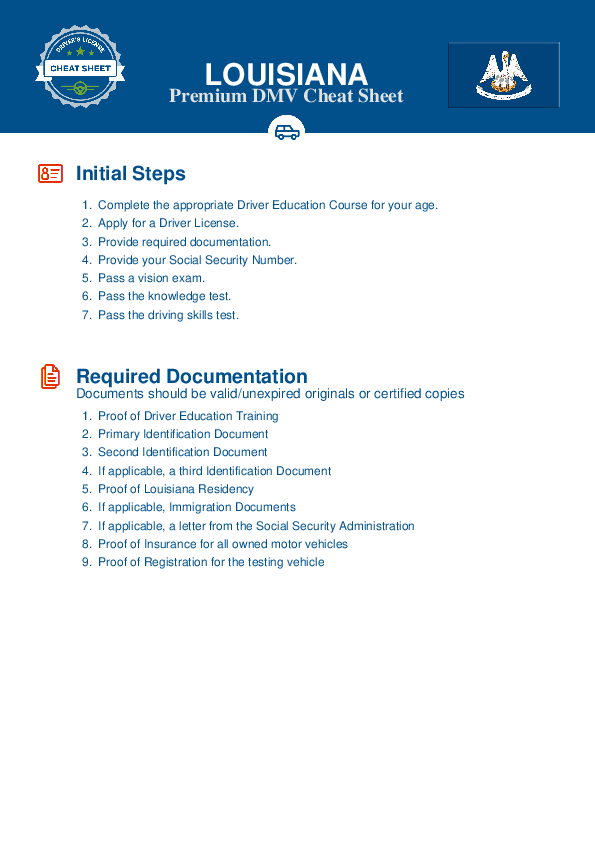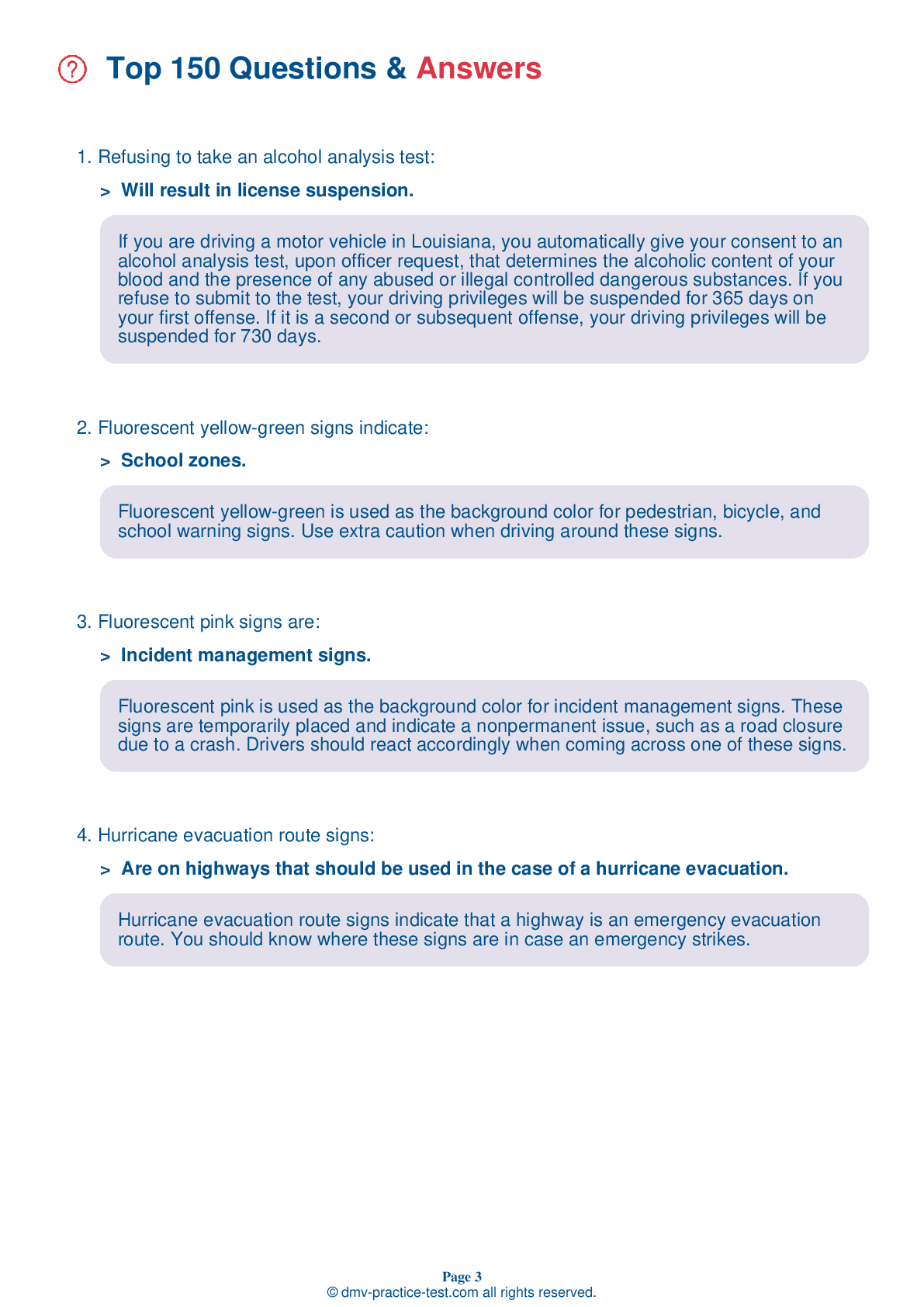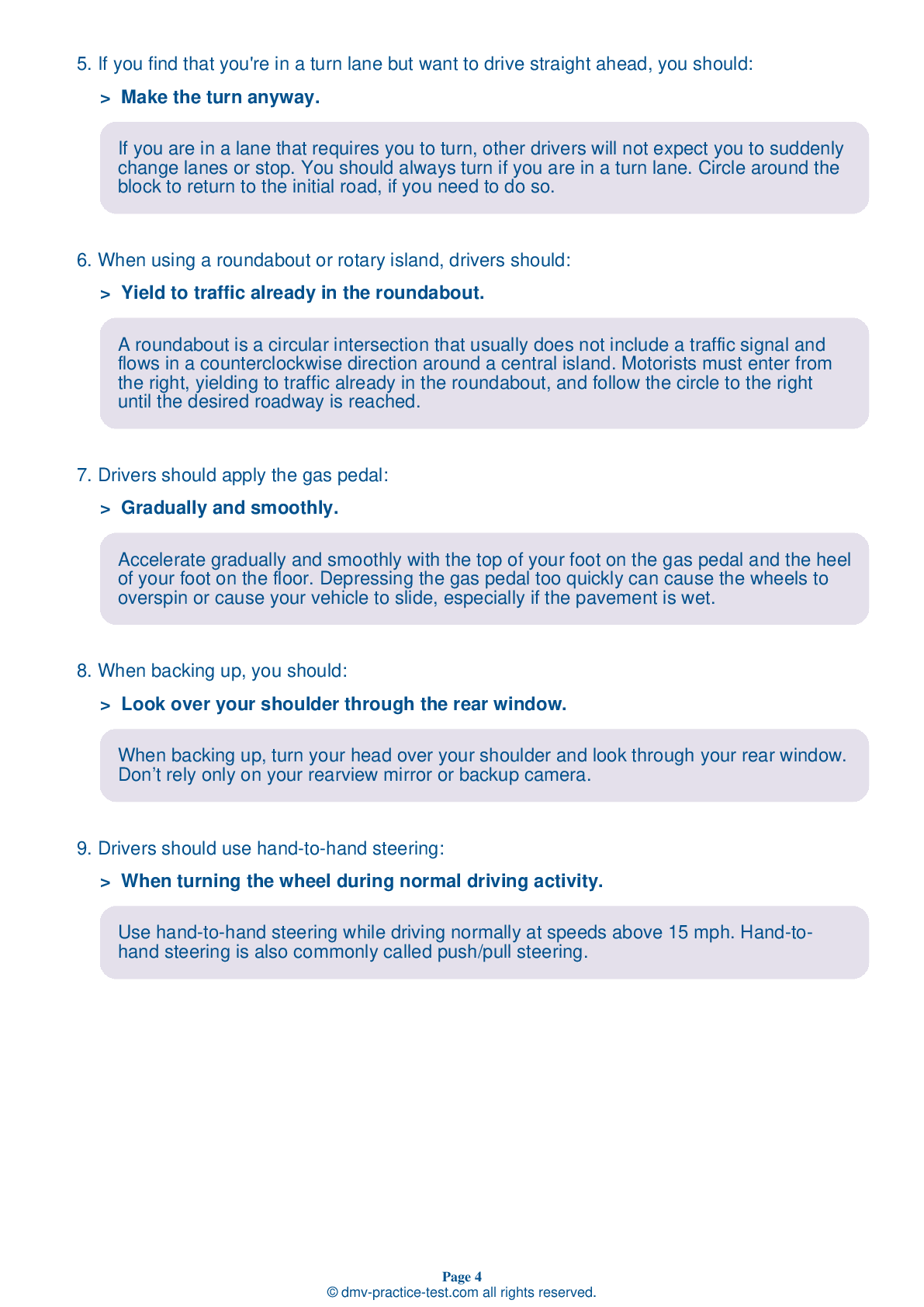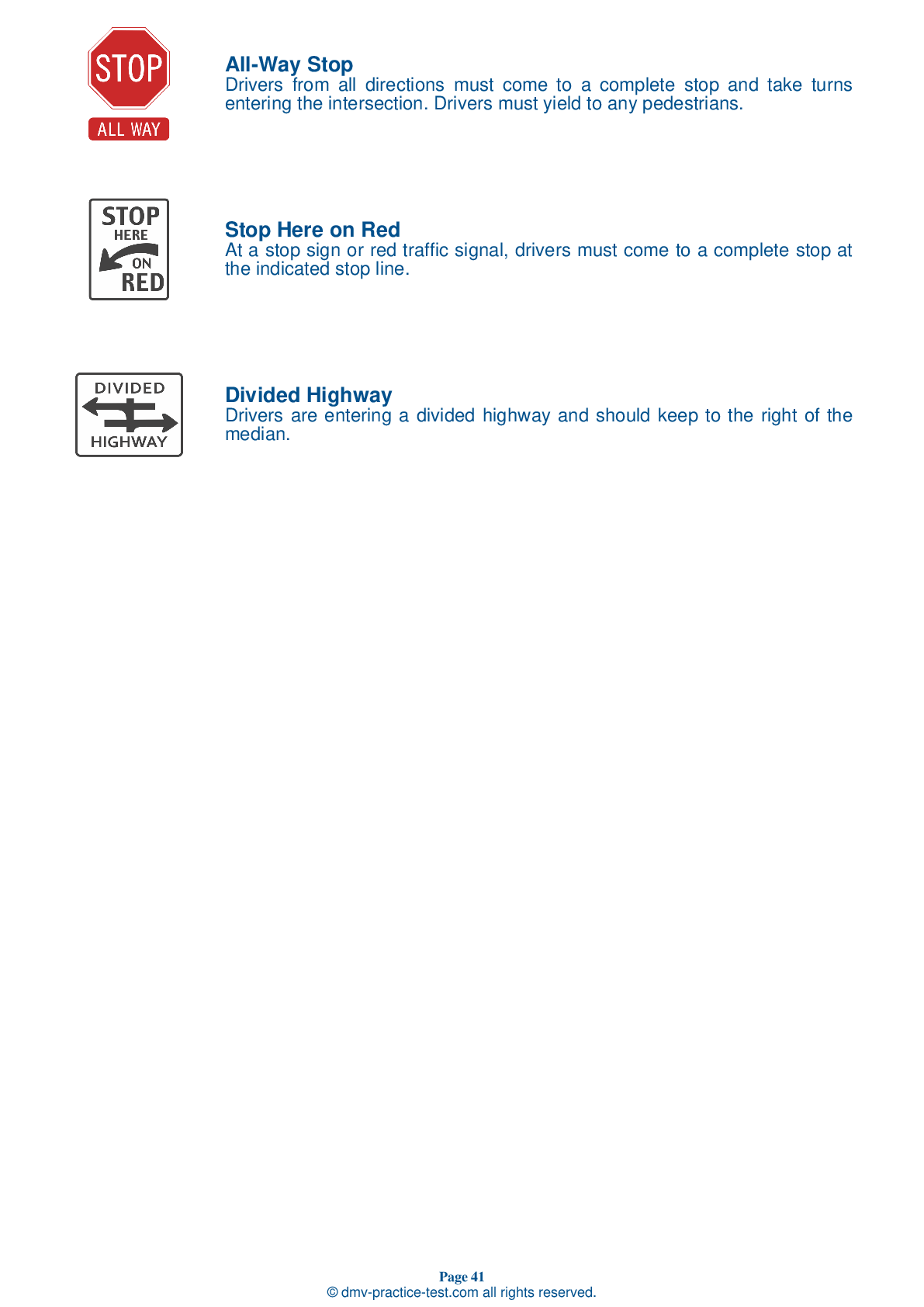FREE Louisiana DMV Practice Test #18 Page 3 of 5
Louisiana's DMV practise tests have been revised for January 2026. It includes questions based on the Louisiana Driver Handbook's most significant traffic signals and legislation for 2026. Use actual questions that are very similar (often identical!) to the DMV driving permit test and driver's licence exam to study for the DMV driving permit test and driver's licence exam.
On the practise exam, each question gets a tip and explanation to help you remember the concepts. The written component of the official Louisiana DMV test will include questions about traffic rules, traffic signs, and driving statutes, as well as knowledge from the Driver Handbook.
To obtain a passing grade, you must correctly answer 32 of the 40 questions. Take our DMV practise exam to help you prepare for your Louisiana instruction permit or driver's licence.
The DMV exam is available in several languages.
Using any kind of testing assistance will result in an automatic fail, and the DMV may take additional action against your driver's licence, so stay away from it.
17 . Which of the following is true about driving on a wet roadway?
The faster you drive on a wet roadway, the less effective your tires will be at wiping the water from the road. If your speed becomes excessive enough, your tires will lose their grip on the road entirely and you will begin to hydroplane (that is, to slide down the road on a film of water).
18 . If you need to drive in foggy weather:
You are required to use your headlights during the day when visibility is reduced to 500 feet or less. When you first turn on your headlights, be sure they are adjusted to the low beam setting. Using high beams in fog or rain will cause the light to reflect back into your eyes, lowering visibility even more.
19 . The act of turning your head and checking your blind spot before changing lanes, driving away from a curb, or merging your vehicle into traffic is:
When changing lanes, it is important to check your blind spots. Do this by looking over your shoulder toward the next lane. Do not rely only on your mirrors.
20 . This sign means:
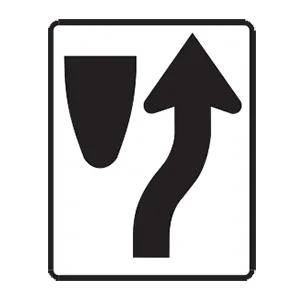
Regulation signs regulate traffic speed and movement, displaying rules which drivers must obey. This regulation sign indicates that drivers should keep right to avoid an upcoming potential driving hazard.
21 . This sign means:
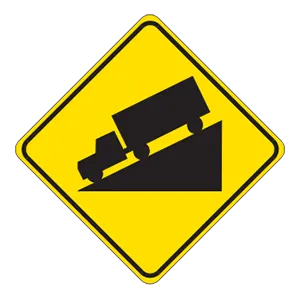
Warning signs prepare drivers for upcoming road conditions and hazards and are usually yellow with black markings. This sign warns drivers about an upcoming steep hill. They should adjust their speed accordingly to avoid brake damage or collision.
22 . Drivers must yield to a pedestrian:
Drivers must always yield to pedestrians in the street, even if they are crossing against a red light or are otherwise being careless.
23 . This sign means:
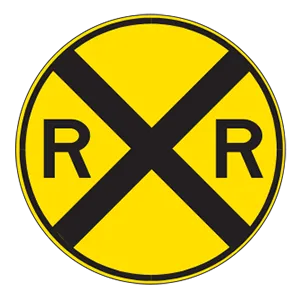
Circular traffic signs indicate upcoming railroad crossings. This sign tells drivers that they are approaching a railroad crossing and should be looking for signs of an oncoming train.
24 . What is the appropriate action to take when approaching a railroad crossing that does not have signals to direct traffic?
When approaching an unmarked railroad crossing, slow down and be prepared to stop. Before you cross, be sure that no trains are approaching from either direction on any track. If you see or hear a train coming, stop at a safe distance from the nearest track and wait to proceed until after the train passes.
See the exact questions that will be on the 2026 Louisiana DMV exam.
99.2% of people who use the cheat sheet pass the FIRST TIME
LT gives us an insight on how the cheat sheet provided her with all the study questions she needed before taking her test.
Joe initially studied with the handbook and failed his test, he eventually found us online, studied and pass his test the first time around.
